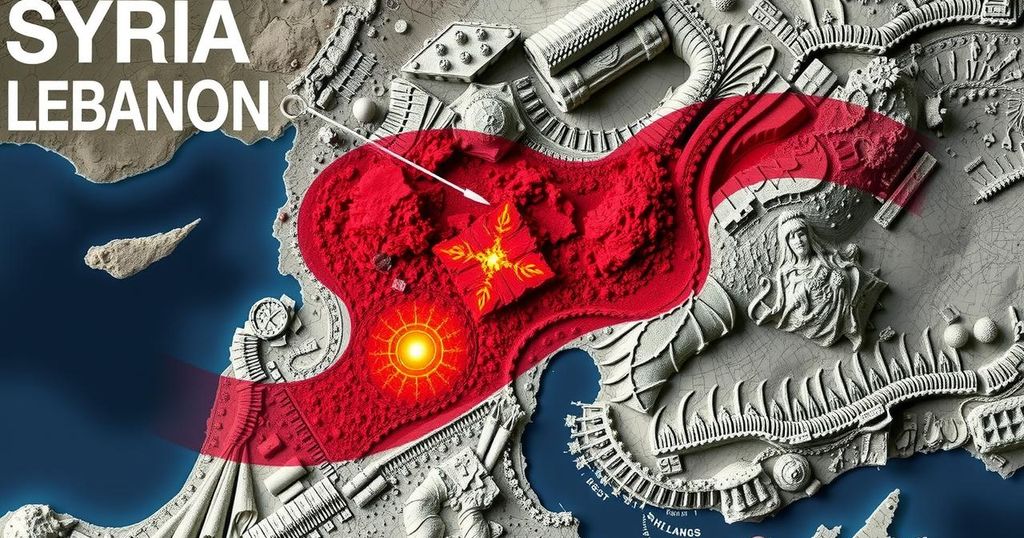The Political Aftershocks of Syria’s Collapse: Sunni Demands in Lebanon
The article discusses the political ramifications following the collapse of the Assad regime in Syria, particularly the awakening of Sunni Islamists in Lebanon who are demanding amnesty for imprisoned Islamist militants while also navigating the weakened position of Hezbollah. It highlights the tensions within the Lebanese political system amid calls for change and the implications of regional dynamics.
The recent earthquake in Syria and the subsequent political tremors in Lebanon highlight the complex interplay between regional dynamics and local sentiments. The fall of the Assad regime was met with public jubilation in Lebanon, particularly among Sunni communities who viewed it as an opportunity to assert their influence over Hezbollah and the Shiite-dominated political landscape. In response to this shift, Lebanese Sunni Islamists, notably affiliates of Jamaah Islamiya, have rallied to demand the release of Islamist prisoners, leveraging their newfound momentum.
On December 10, Sheikh Ahmad Shemali led significant protests in Tripoli, emphasizing the need for amnesty for imprisoned Islamists, a move that could potentially reignite sectarian tensions. As Lebanon’s political system grapples with a crisis exacerbated by Hezbollah’s weakened military standing post-conflict with Israel, the Sunni community’s awakening signifies a potential rebalancing of power dynamics. However, the prospect of amnesty hinges on political will, particularly from Lebanese Parliament Speaker Nabih Berri, whose affiliation with Hezbollah complicates this demand.
The meeting on December 6 between General Joseph Aoun, commander of the Lebanese Armed Forces, and Wafiq Safa of Hezbollah culminated in tensions over weapons control in southern Lebanon. As the political atmosphere grows more volatile with the forthcoming presidential elections in January 2025, the struggle for power is evident within the Christian community, where factions are at odds in their quest for a compromise candidate. The dynamics of Sunni awakening coincide with fears of continued instability in Lebanon, compounded by memories of past conflicts with terrorist groups like ISIS.
Despite recent developments, the Syrian regime’s newly consolidated power under the leadership of Tahrir al Sham (HTS) suggests a period of non-interference in Lebanon. However, both Lebanon and Syria remain vulnerable to instability due to ongoing socio-political shifts. The complexities of Lebanon’s internal divisions, coupled with external influences, will significantly shape the future landscape of both countries.
The backdrop of the article centers around the socio-political upheaval following the collapse of the Assad regime in Syria, which has emboldened Sunni factions in Lebanon to challenge the existing political order dominated by Hezbollah, a Shiite group. The Sunni community, sparked by the transformations in Syria, has begun to vocalize demands for political engagement and the release of prisoners, seeking to reshape their standing in a traditionally sectarian political system.
In summary, the political landscape in Lebanon is at a critical juncture following the upheaval in Syria. The ascendance of Sunni Islamists poses challenges to Hezbollah’s dominance, potentially leading to significant political ramifications. As regional dynamics continue to unfold, the repercussions for Lebanon may be profound, with an awakening Sunni community seeking to redefine its power amidst longstanding sectarian divides. The future remains uncertain as Lebanon navigates these complex interdependencies with its neighbor.
Original Source: aurora-israel.co.il




Post Comment